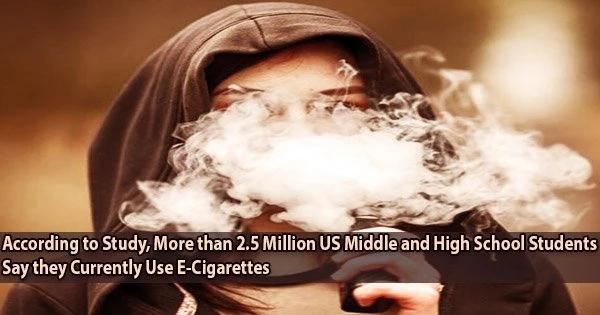E-cigarette use among middle and high school students in the US is estimated to be over 2.55 million, according to study results from a poll earlier this year.
Responses from the 2022 National Youth Tobacco Survey, which was conducted between January 18 and May 31, were examined by researchers from the US Centers for Disease Control and Prevention and the US Food and Drug Administration. They discovered that 3.3% of middle school students and 14.1% of high school students had used e-cigarettes in the 30 days prior. Of those, 42.3% reported using them frequently, and 27.6% of them reported daily use.
“This study shows that our nation’s youth continue to be enticed and hooked by an expanding variety of e-cigarette brands delivering flavored nicotine,” said Deirdre Lawrence Kittner, director of CDC’s Office on Smoking and Health, in a news release.
“Our work is far from over. It’s critical that we work together to prevent youth from starting to use any tobacco product including e-cigarettes and help all youth who do use them, to quit.”
The study, published Thursday in the CDC’s Morbidity and Mortality Weekly Report, found that “Puff Bar was the most commonly reported brand used in the past 30 days by both middle and high school students (29.7%), followed by Vuse (23.6%), JUUL (22.0%), SMOK (13.5%), NJOY (8.3%), Hyde (7.3%), and blu (6.5%).”
A large majority 84.9% of current users chose flavored products. Fruit was the top preferred flavor; mint, menthol and candy or sweet flavors were also popular.
Adolescent e-cigarette use in the United States remains at concerning levels, and poses a serious public health risk to our nation’s youth. Together with the CDC, protecting our nation’s youth from the dangers of tobacco products including e-cigarettes remains among the FDA’s highest priorities, and we are committed to combatting this issue with the breadth of our regulatory authorities.
Brian King
It wasn’t until April this year that the US Food and Drug Administration oversight covered brands such as Puff Bar. Before then, because vaping companies were making synthetic nicotine in labs and not tobacco-derived nicotine, they were not within the agency’s purview.
However, a national spending bill enacted in March “makes clear that FDA can regulate tobacco products containing nicotine from any source.” This means that anyone who makes or sells “non-tobacco nicotine” have to comply with FDA regulations, which include not selling to under-21s and or giving away free samples.
“Since 2014, e-cigarettes have been the most commonly used tobacco product among U.S. middle and high school students,” the researchers noted. “Most e-cigarettes contain nicotine, which is highly addictive, can harm the developing adolescent brain, and can increase risk for future addiction to other drugs.”
“Adolescent e-cigarette use in the United States remains at concerning levels, and poses a serious public health risk to our nation’s youth,” said Brian King, director of the FDA’s Center for Tobacco Products, in the press release.
“Together with the CDC, protecting our nation’s youth from the dangers of tobacco products including e-cigarettes remains among the FDA’s highest priorities, and we are committed to combatting this issue with the breadth of our regulatory authorities.”
The findings are based on data from the 2022 National Youth Tobacco Survey, which is a self-administered survey of US students in grade six thorugh 12 and was administered from January 18 to May 31 of this year.
The CDC press release notes that changes in the survey methodology, including changes in administration and data collection due to the pandemic, mean that there is limited ability to compare 2022 estimates with past years, saying “differences might be due to changes in methodology, actual behavior, or both.”
















